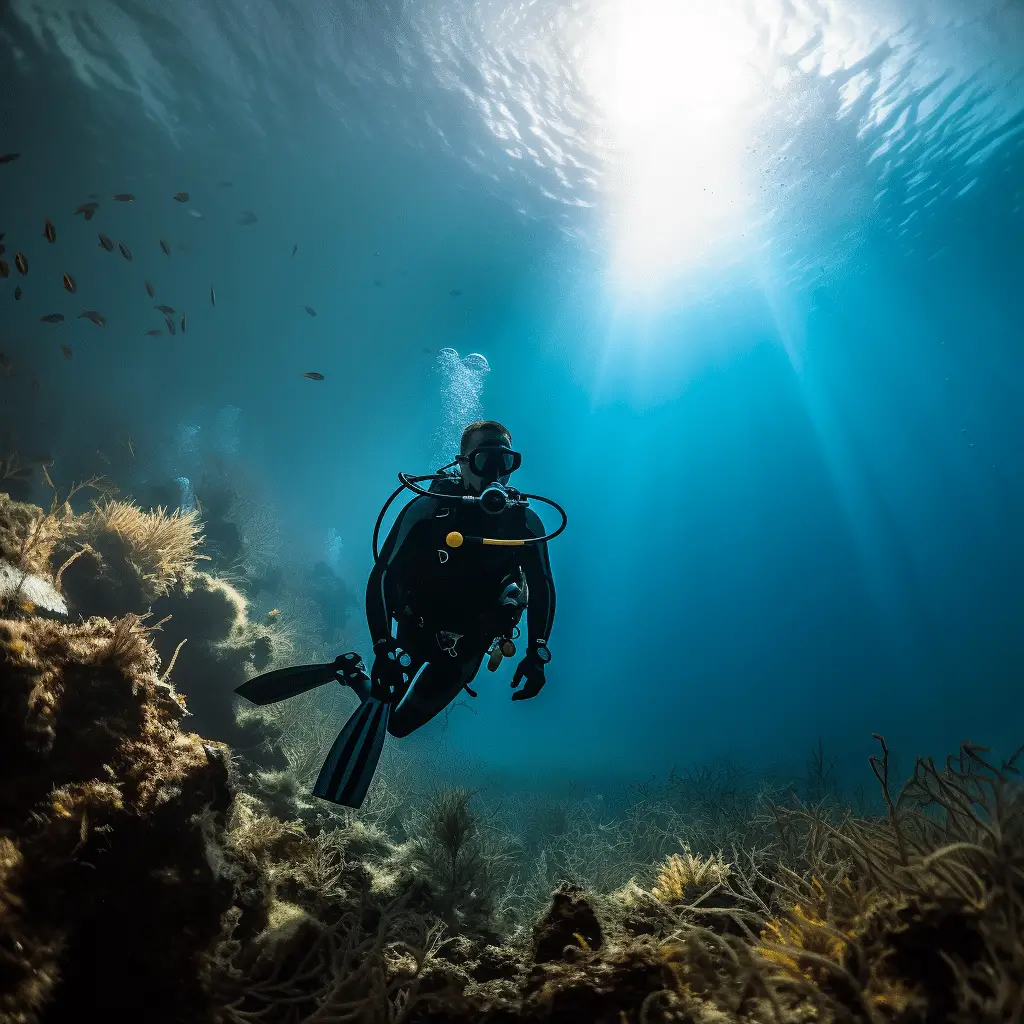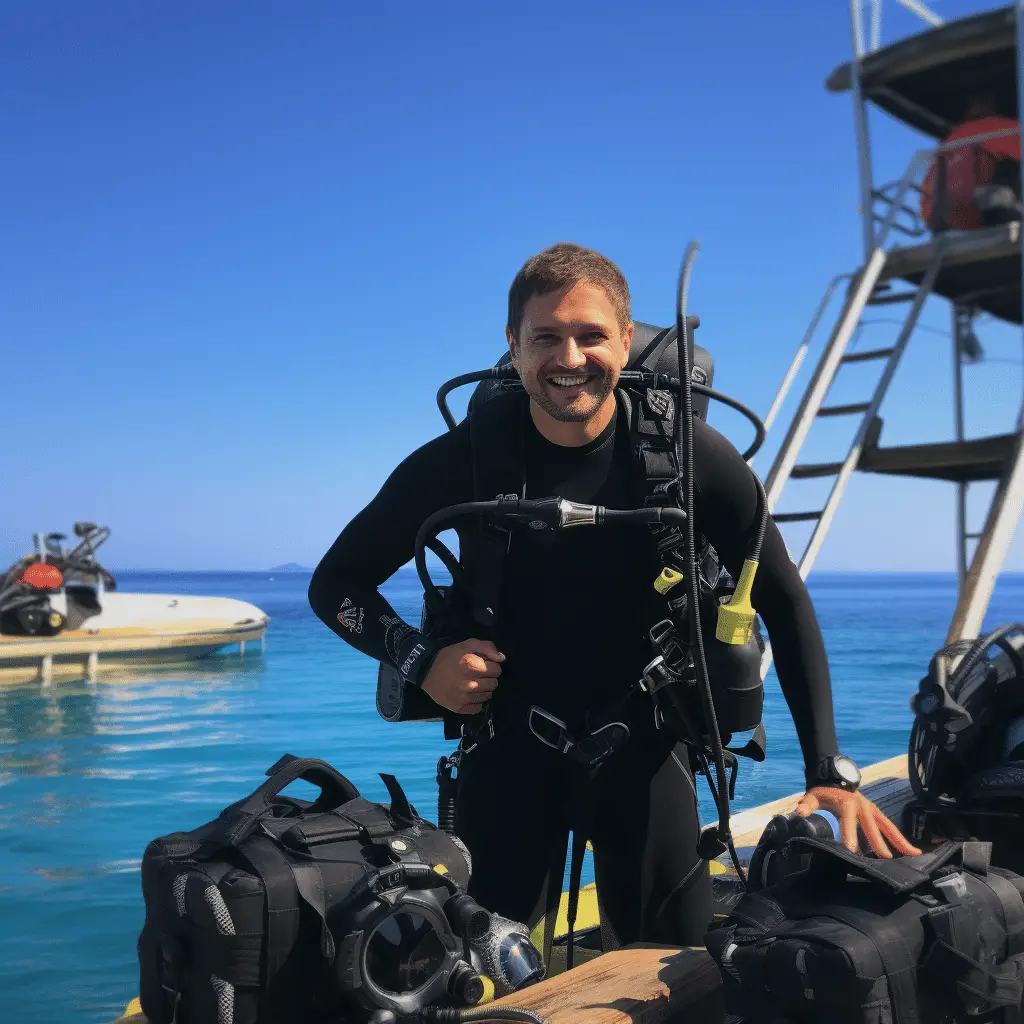Divers need great cardiovascular health for a safe and fun dive. Here are tips to keep your heart healthy!
Stay active. Exercise like swimming or cycling boosts blood flow and oxygen, giving you better performance.
Eat healthy. Fruits, veggies, grains and lean proteins reduce the risk of heart disease. Avoid saturated fats and sodium.
Manage stress. High-stress can raise heart rate and blood pressure. Practice relaxation techniques like deep breathing or yoga.
Get restorative sleep. Seven to eight hours of quality sleep helps your body repair and reduces heart disease risk.
Understanding the Importance of Cardiovascular Health for Divers

Cardiovascular health is key for divers. It keeps them safe and sound underwater. Regular aerobic exercise helps build the heart muscle and keeps blood flowing. Swimming, cycling, and jogging boost endurance and stamina. Nutrition is also essential for a healthy heart. Lean proteins, fruits, veggies, grains, and healthy fats reduce cholesterol and maintain blood pressure. Limiting sodium helps prevent water retention. Proper hydration is important too. It maintains blood volume and prevents stress on the heart. Additionally, managing stress levels is essential for a healthy heart. Relaxation techniques like deep breathing or yoga help mitigate stress.
In conclusion, divers need to understand the importance of cardiovascular health for safe and enjoyable dives. Exercise, nutrition, hydration, and stress management all contribute to robust cardiovascular function and minimize risks. Dive in with confidence, knowing your heart is up to the challenge!
Tips for Maintaining Good Cardiovascular Health as a Diver
Maintaining great heart health is key for a safe and exciting diving experience. Try these tips to keep your heart in shape:
- Exercise often: Swimming or running are great aerobic activities to boost your cardiovascular fitness. They strengthen your heart and lungs, helping them to supply oxygen to your body’s tissues, including organs like the brain.
- Eat healthy: What you eat plays a huge role in cardiovascular health. Have a balanced diet with lots of fruits, veggies, whole grains, lean proteins, and healthy fats. Avoid processed foods loaded with saturated and trans fats, sodium, and added sugars.
- Manage stress: Diving can be awesome but also stressful at times. Prolonged stress can hurt your cardiovascular system. To reduce stress levels, do relaxation techniques like deep breathing or meditation.
Also, keep in mind that fitness requirements differ based on age, health condition, and dive frequency. Speak with a healthcare pro knowledgeable about diving to see if there are any special considerations or precautions you need.
The AHA says that regular physical activity can reduce the risk of heart disease by 30%. These findings prove how important it is to maintain good cardiovascular health for our well-being as divers.
Conclusion
Maintaining good cardiovascular health is a must for divers. Swimming and cardio workouts can help improve heart function and endurance. Plus, a balanced diet full of nutrients and hydration is key for optimal performance beneath the waves.
Be aware that medical conditions such as high blood pressure or heart disease may affect a diver’s safety. So, it is best to consult a healthcare professional before going on any diving adventures.
Another important aspect of cardiovascular health for divers is stress management. The underwater environment can be intense, causing increased heart rate and anxiety. Relaxation techniques, like deep breathing exercises or meditation, can help regulate emotions and keep calm while diving.
To emphasize the importance of cardiovascular health in diving, let me share a real story. John was an experienced scuba diver who stopped exercising for a few years. On a dive trip to a remote place, he had difficulty due to his poor cardiovascular condition. This led to him ending his trip early and missing a chance to explore the stunning underwater world.

Frequently Asked Questions
FAQ 1: What are some tips for maintaining good cardiovascular health as a diver?
Answer: To maintain good cardiovascular health as a diver, it is important to engage in regular physical activity such as swimming, jogging, or cycling. Additionally, maintaining a healthy diet, managing stress levels, and avoiding smoking are crucial. Regular check-ups with a healthcare professional specifically focused on cardiovascular health can also help identify any potential risks or issues.
FAQ 2: How does regular physical activity benefit cardiovascular health for divers?
Answer: Regular physical activity helps improve cardiovascular health by strengthening the heart and improving its ability to pump blood efficiently. It also helps maintain healthy blood pressure levels, reduces the risk of developing heart disease, and improves overall endurance, which is important for divers who often engage in extended periods of physical activity underwater.
FAQ 3: Are there any specific exercises that are beneficial for cardiovascular health as a diver?
Answer: While any form of aerobic exercise can be beneficial, certain exercises that simulate diving conditions, such as swimming laps or using a stationary bike, can be particularly helpful. These exercises enhance cardiovascular fitness and improve the efficiency of the body’s oxygen utilization, which is crucial for divers.
FAQ 4: How does a healthy diet contribute to good cardiovascular health for divers?
Answer: A healthy diet rich in fruits, vegetables, whole grains, lean proteins, and low-fat dairy products can help maintain optimal levels of cholesterol, blood pressure, and body weight – all of which are important factors for maintaining cardiovascular health. Avoiding excessive sodium intake and consuming omega-3 fatty acids found in fish can further promote heart health.
FAQ 5: Can stress management techniques positively impact cardiovascular health for divers?
Answer: Yes, stress management techniques like deep breathing exercises, meditation, and yoga can reduce the risk of high blood pressure and heart disease. Engaging in calming activities before and after dives, as well as finding ways to relax during surface intervals, can contribute to better cardiovascular health for divers.
FAQ 6: How does smoking affect cardiovascular health for divers?
Answer: Smoking damages the heart and blood vessels, leading to reduced oxygen supply and increased risk of heart disease. For divers, smoking can have a detrimental effect on their overall cardiovascular health and increase the risk of decompression sickness and other diving-related complications.
